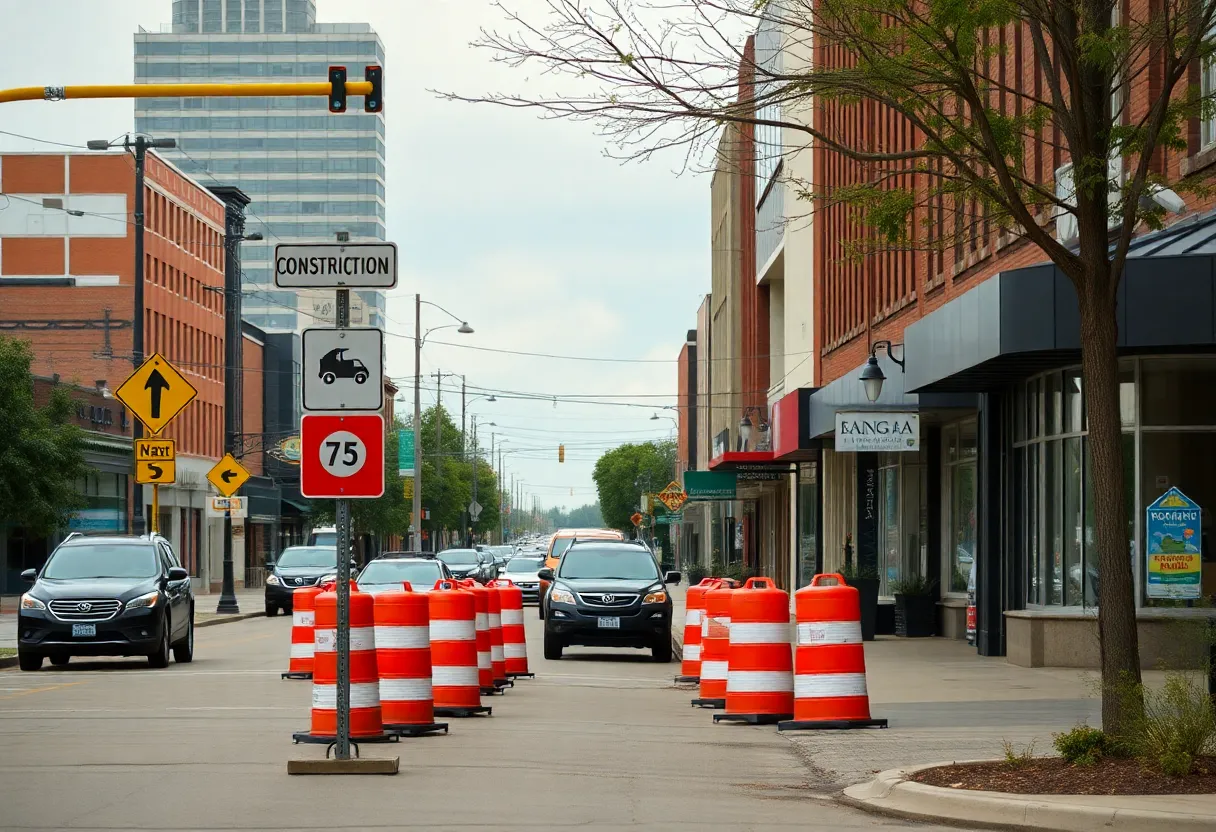

A view of road construction in Michigan highlighting the upcoming tax changes.
Governor Gretchen Whitmer’s proposal to raise corporate income tax in Michigan could significantly impact small businesses and the state’s economy. The increase aims to fund road improvements but may lead to adverse effects on jobs and wages. Critics argue that higher taxes might not be the solution, suggesting alternative funding approaches. The ongoing negotiations may shape the future of Michigan’s economic landscape.
In the Motor City, there’s a buzz in the air as Governor Gretchen Whitmer has put forward a proposal that could impact businesses across the state. Her plan is to raise the corporate income tax on C-corporations by as much as two percentage points—a significant increase from 6% to roughly 8%. This proposed hike is aimed at gathering more funds for Michigan’s much-needed road improvements. But the question on everyone’s lips is: at what cost?
On the surface, raising taxes may seem like a straightforward answer to the road funding dilemma. However, critics argue that this move could be harmful for the entire economy. The Detroit Regional Chamber has voiced its support for finding long-term solutions for road funding, but emphasizes that increasing taxes might not be the right way to go. They believe that user fees—essentially the costs paid by those who use the roads—should be the focus instead.
Here’s a surprising twist: many think that only large corporations will feel the effects of this tax hike. But in reality, the majority of C-corporations—about 87%—actually employ fewer than 100 people. This means that the tax increase will hit many small businesses where it hurts the most, potentially leading to less funding for wages, budget cuts, and a lower spending power for Michigan residents.
Sandy K. Baruah, the head honcho at the Detroit Regional Chamber, has raised concerns that this tax increase could upset Michigan’s business-friendly climate. In a time when the state is already juggling other financial changes such as an upcoming minimum wage increase and new sick time requirements for employees, adding another tax burden might lead to adverse effects on job availability and wage growth.
Moreover, earlier this year, state officials rolled out increases to unemployment benefits, and new tariffs impacting automotive materials have been introduced. These elements are already raising eyebrows about Michigan’s economic health.
In recent years, 16 states have successfully reduced their corporate income tax rates, putting Michigan at risk of falling behind. Instead of competing with more favorable corporate tax rates found in states like Florida, Texas, and North Carolina—where businesses are thriving and populations are growing—Michigan could find itself in the unfortunate position of becoming one of the states with the highest corporate taxes.
While road improvements are essential, many experts believe that existing resources could be tapped more effectively without imposing a tax hike. The Detroit Regional Chamber, alongside MichAuto, is pushing for discussions focused on current revenue sources for road maintenance rather than raising taxes. They are gathering research to influence the conversation.
Whitmer’s plan aims to bring in about $3.77 billion in additional annual revenue, with substantial allocations intended for local road enhancements and transit initiatives. The corporate income tax increment is projected to contribute around $1.6 billion towards these initiatives, but how this will all play out remains uncertain.
Meanwhile, House Republicans are advocating for a different approach. Their alternative plan seeks to redirect tax revenues from fuel sales straight to road maintenance, ensuring that no new taxes are introduced.
As negotiations begin, it’s clear that both the House and Senate, controlled by different political parties, will examine these proposals closely. The mix of potential tax increases and shifts in funding could lead to unexpected repercussions for various sectors, including education, where concerns about maintaining funding levels are currently running high.
Michigan isn’t just at a crossroads when it comes to infrastructure improvements; it’s navigating a complex financial landscape. All eyes will be on the decision-makers as they work through these tough choices affecting everyone in the state. Buckle up, folks! The outcome of these discussions could determine the road ahead for Michigan’s economy.
News Summary Michigan's upscale remodeling market is thriving, blending modern luxury with historic charm. Demand…
News Summary A new HGTV series titled 'Condemned' will debut in summer 2025, focusing on…
News Summary The heartbreaking death of 5-year-old Thomas Cooper in a hyperbaric chamber explosion at…
News Summary A Pontiac mother has been arrested for abandoning her three children in deplorable…
News Summary Michigan's 'Pothole Payback' contest invites residents to share their pothole damage experiences for…
News Summary In a controversial move, the University of Michigan has announced the closure of…